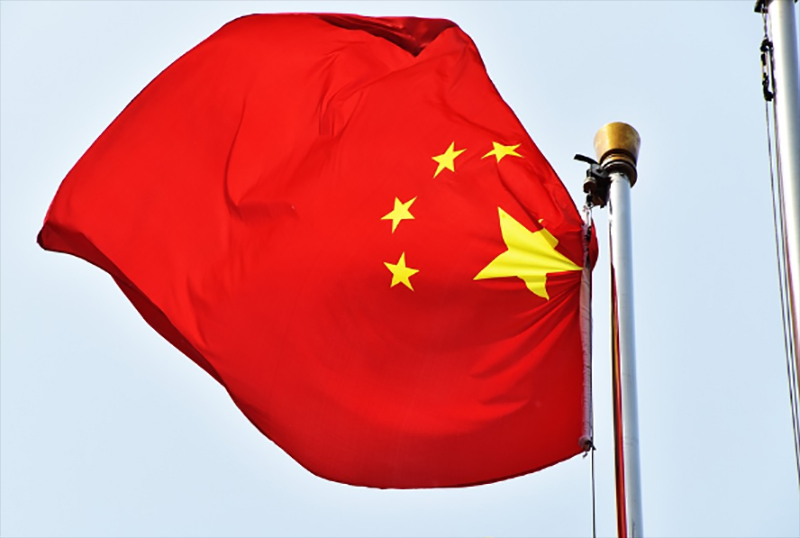 China
China
China's local government debt crisis
China's local governments are grappling with worsening financial conditions, as their debt ratios continue to escalate, posing significant challenges in effectively managing financial risks.
Experts warn that the financial deterioration of 31 provincial-level governments across the country has become irreversible, making debt defaults inevitable. Local governments are burdened with a range of issues, including a deteriorating revenue structure, uneven financial resources between regions, expanding expenditure demands, widening fiscal deficits, and a rapid surge in borrowing to bridge the gap.
This article explores the dire financial situation faced by several Chinese cities and the implications for both local and central governments.
China's local governments are grappling with a growing debt burden and fiscal imbalances, signaling deep financial distress.
Among the 35 major cities in China, only Hangzhou maintains a fiscal self-sufficiency rate exceeding 100 percent, while seven cities have rates below 50 percent.
Notably, six cities face deficits exceeding 100 billion yuan ($14.28 billion), including Chongqing, Beijing, Tianjin, Guangzhou, Wuhan, and Shanghai.
The city of Harbin, capital of Heilongjiang Province, has been particularly hard-hit, witnessing mounting debt and significant revenue shortfalls.
In 2022, Harbin's general public budget revenue plummeted by 28.3 percent year-on-year, while expenditures surged by 7.4 percent.
Consequently, the self-sufficiency rate plummeted to a meager 29.22 percent.
The city's government debt balance reached a staggering 289.86 billion yuan ($41.71 billion) by the end of 2022, already indicating a high debt burden prior to the COVID-19 pandemic.
Similarly, Tengchong city in Yunnan Province is experiencing severe financial difficulties, characterized by imbalanced income and expenditure, low-quality revenues, and a rapidly increasing debt rate.
The city's Communist Party boss openly acknowledged the precarious financial situation, highlighting the challenges in risk prevention and management.
To maintain a semblance of fiscal balance across the country, Beijing has been reallocating funds from surplus regions to those facing deficits, creating dependence on the central government.
This approach aims to cover local government deficits and ensure a balanced budget.
However, this mechanism has faltered in recent years as the balance collapsed, leaving the central government unable to resolve the financial problems faced by the 31 provincial-level regions.
As the revenue structure weakens and debt continues to accumulate, local governments have been left with limited options to address their financial woes.
The lack of surplus regions with greater income than expenditures further exacerbates the issue.
China's current affairs commentator, Dr. Jason, suggests that the central government is incapable of solving the financial challenges faced by local governments.
China's local governments, confronted with deteriorating financial conditions and mounting debt, are increasingly seeking assistance from Beijing.
The Guizhou provincial government publicly acknowledged the difficulty of resolving its debt problem independently, requesting support from the central government to ensure financial stability.
The province's move is significant, as it marks the first time a provincial government openly sought help while hinting at the possibility of debt default.
However, the Chinese Communist Party (CCP) leadership swiftly responded by demanding the removal of the article from the internet, firmly reiterating the central government's stance against bailouts for local governments.
The former Minister of Finance, Lou Jiwei, also emphasized that Beijing would adhere to the "no bailout" principle regarding local government debts. Guizhou Province, according to its 2022 budget implementation status, is grappling with an alarming debt balance of 1.24 trillion yuan ($179 billion), while its financial self-sufficiency rate stands at a mere 24.2 percent.
The province's heavy reliance on annual fiscal revenue implies that it would take approximately 6.6 years to repay the principal debt amount and a staggering 25 years when considering interest payments.
Moreover, if the provincial government halts investments in fixed assets, the local economy, lacking adequate industrial support, risks stagnation.
The colossal debt burden of Guizhou Province appears insurmountable without intervention from Beijing. Chinese American current affairs commentator, Dr. Jason, highlights two primary reasons behind the Central Committee's decision to remain inactive regarding the local debt issue.
Firstly, he argues that the central government is indeed facing financial constraints, rendering it incapable of addressing the mounting debt crises across the country.
Secondly, the Chinese Communist Party (CCP) is well aware that regional debt crises are widespread. Setting a precedent by bailing out one region would trigger a domino effect, with other regions demanding similar financial support.
Fearing the bursting of the local debt bubble, the CCP has refrained from providing a blanket financial bailout. China is hence sitting on a lot of financial time bombs.
Its only a matter of time before they burst.
Support Our Journalism
We cannot do without you.. your contribution supports unbiased journalism
IBNS is not driven by any ism- not wokeism, not racism, not skewed secularism, not hyper right-wing or left liberal ideals, nor by any hardline religious beliefs or hyper nationalism. We want to serve you good old objective news, as they are. We do not judge or preach. We let people decide for themselves. We only try to present factual and well-sourced news.







